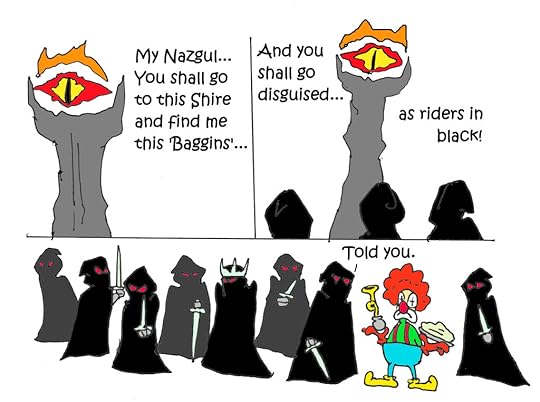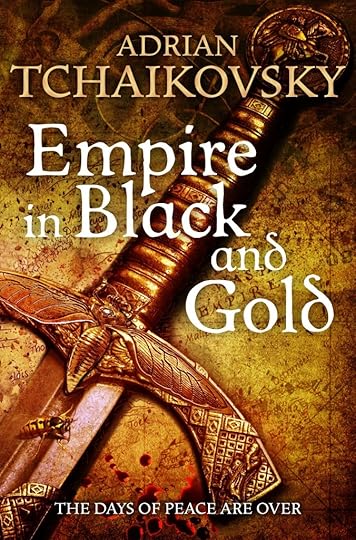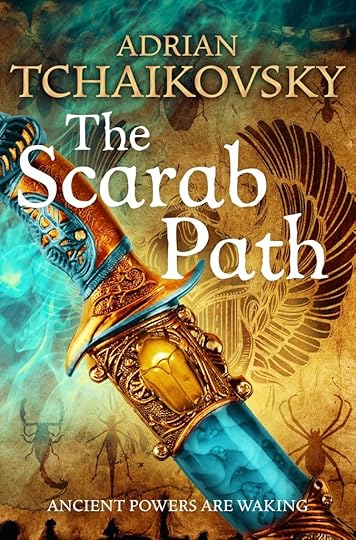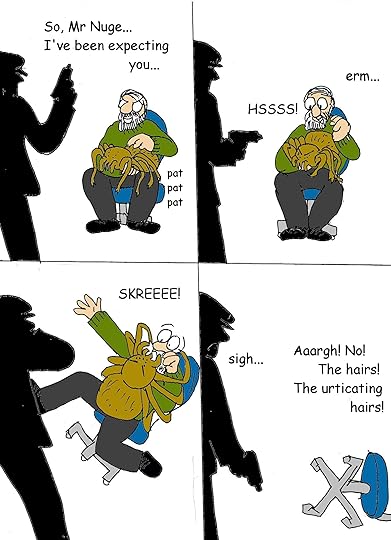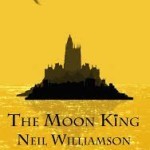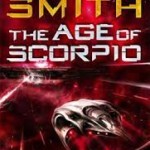Adrian Tchaikovsky's Blog, page 8
December 13, 2015
2015: A Year In Books
This is going to be immeasurably easier than last year because of the large number of bookish posts I've done over the year. So firstly let's just get with the Christmas spirit of internet list articles and just rehash those:
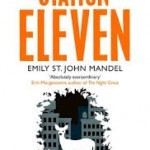 Here is the shortlist for the Clarke Award in which I show myself absolutely off the mark as the book I didn't really get on with (Station Eleven) was the one that won. However, all good books, so check out The Girl with all the Gifts (Carey), The Book of Strange New Things (Faber), Europe in Autumn (Hutchinson), Memory of Water (Itaranta), Station Eleven (Mandel) and my personal favourite, by a whisker, The First Fifteen Lives of Harry August (North).
Here is the shortlist for the Clarke Award in which I show myself absolutely off the mark as the book I didn't really get on with (Station Eleven) was the one that won. However, all good books, so check out The Girl with all the Gifts (Carey), The Book of Strange New Things (Faber), Europe in Autumn (Hutchinson), Memory of Water (Itaranta), Station Eleven (Mandel) and my personal favourite, by a whisker, The First Fifteen Lives of Harry August (North).
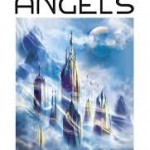 Here is my post lauding City of Stairs (Bennett), Breed (Davies), The Incorruptibles (Jacobs) and The Glorious Angels (Robson)
Here is my post lauding City of Stairs (Bennett), Breed (Davies), The Incorruptibles (Jacobs) and The Glorious Angels (Robson)
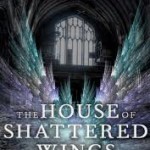 Here is my take on Age of Scorpio (Smith), Prospect of War (Sales), Europe at Midnight (that busy fellow Hutchinson again), House of Shattered Wings (Bodard), Space Hostages (MacDougall), The Raven's Banquet (Beal) and The Lie Tree (Hardinge).
Here is my take on Age of Scorpio (Smith), Prospect of War (Sales), Europe at Midnight (that busy fellow Hutchinson again), House of Shattered Wings (Bodard), Space Hostages (MacDougall), The Raven's Banquet (Beal) and The Lie Tree (Hardinge).
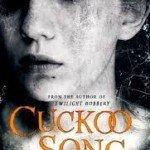 And here is the shortlist for the BFS Holdstock award which was won, delightfully, by Frances Hardinge's Cuckoo Song, and also touches on Breed and City of Stairs from the above link as well as The Relic Guild (Cox), The Moon King (Williamson) and A Man Lies Dreaming (Tidhar).
And here is the shortlist for the BFS Holdstock award which was won, delightfully, by Frances Hardinge's Cuckoo Song, and also touches on Breed and City of Stairs from the above link as well as The Relic Guild (Cox), The Moon King (Williamson) and A Man Lies Dreaming (Tidhar).
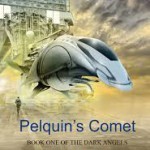 That is a cracking reading list right there, but I'm going to throw some science fiction into the mix that I've recently devoured — hence I can also heartily recommend Ian Whates' Pelquin's Comet, which is an extremely fast-paced and readable space opera, taking a crew of rogues and treasure hunters into forbidden space searching for elder technology, complete with dark pasts and perhaps the genre's only kick-ass banker. This has a real Firefly feel to it, the characters are interesting and likeable, the pace rattles along and there's a race of spider aliens who aren't outright bad guys.
That is a cracking reading list right there, but I'm going to throw some science fiction into the mix that I've recently devoured — hence I can also heartily recommend Ian Whates' Pelquin's Comet, which is an extremely fast-paced and readable space opera, taking a crew of rogues and treasure hunters into forbidden space searching for elder technology, complete with dark pasts and perhaps the genre's only kick-ass banker. This has a real Firefly feel to it, the characters are interesting and likeable, the pace rattles along and there's a race of spider aliens who aren't outright bad guys.
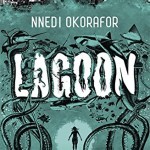 Next up, and I'm rather late to the table for this one, Nnedi Okorafor's Lagoon, which is an alien first contact scenario where the aliens, instead of turning up in New York like the films, make their appearance in Lagos, Nigeria, initially grabbing a mismatched handful of people and spitting them out, but then snowballing their interaction with humanity, clashing with the military, the religious and the political. This is a book with a whole load of layers and a lot going on, and to go into much detail would be to spoil it — the alien first contact is by no means the be-all and end-all of the beautiful weirdness — but it's a powerfully thought-provoking read.
Next up, and I'm rather late to the table for this one, Nnedi Okorafor's Lagoon, which is an alien first contact scenario where the aliens, instead of turning up in New York like the films, make their appearance in Lagos, Nigeria, initially grabbing a mismatched handful of people and spitting them out, but then snowballing their interaction with humanity, clashing with the military, the religious and the political. This is a book with a whole load of layers and a lot going on, and to go into much detail would be to spoil it — the alien first contact is by no means the be-all and end-all of the beautiful weirdness — but it's a powerfully thought-provoking read.
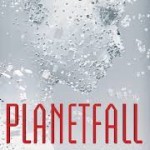 Finally, Emma Newman's Planetfall has been released very recently, and I was lucky enough to get an advance copy from Emma. This is another deeply thoughtful book — a human colony on a forbidding alien planet next to its one major landmark — a huge alien… structure? Habitat? Lifeform? The humans have been guided there by a prophet whose purported divine message was apparently bang on the money, but now she's disappeared and the colonists live on in the shadow of their past choices. One of the book's great strengths is the narrator, Renata, who provides the colony with everything it needs via the 3D printers they rely on, but whose own shadow is not the alien edifice but her own inner demons. Renata is one of the most fascinating and well-drawn pieces of characterisation I've read in a long time.
Finally, Emma Newman's Planetfall has been released very recently, and I was lucky enough to get an advance copy from Emma. This is another deeply thoughtful book — a human colony on a forbidding alien planet next to its one major landmark — a huge alien… structure? Habitat? Lifeform? The humans have been guided there by a prophet whose purported divine message was apparently bang on the money, but now she's disappeared and the colonists live on in the shadow of their past choices. One of the book's great strengths is the narrator, Renata, who provides the colony with everything it needs via the 3D printers they rely on, but whose own shadow is not the alien edifice but her own inner demons. Renata is one of the most fascinating and well-drawn pieces of characterisation I've read in a long time.
And I have now earned, I think, the chance to blow a little involuntary on my own trumpet. Guns of the Dawn and Children of Time have had some cracking reviews, and I'm very much hoping they will be a bit of a springboard for phase 2 of Tchaikovsky: the Author Years, so any nice reviews on Amazon, Goodreads, forums etc are always appreciated, and here's to February 2016, and the release of The Tiger and the Wolf, when we'll see what the world makes of that…
December 5, 2015
2015: A Year in (the very few) Film(s I actually got to see).
The dread condition known as "being a parent and having two jobs" continues to cramp my film watching style. Although there weren't that many films I desperately wanted to see that I didn't get a chance to. Perhaps "The Lobster". Although I I may have misunderstood what it's about. Certainly the scene with the giant lobster destroying Chicago didn't seem to make the trailer.
There were two stand out films for me this year. There were also several films I saw with my son, as usual. I am not the demographic for these films. I understand I should not venture an opinion on these films. All I will say is that there is no way even a large pterosaur could carry off a full grown woman, the biomechanics of it just don't work. Oh, and Inside Out is a bastard film that hit me emotionally right in the voolnerables.
So what did Marvel get up to this year? Aside from win all the awards with last year's Guardians of the Galaxy, which I don't begrudge because it was an extremely good film. This year the Avengers had their second outing, and… I was a bit ambivalent in the end. I liked a lot of it, but it felt as though it was suffering from the dread character bloat that's presumably going to be a problem with any future grand team up superhero film . Effects were as impeccable as always; there were a lot of good scenes and performances; not sold on the Widow/Hulk match; would very much have liked to see more of Vision and Scarlet Witch.
Also this year was Ant Man which came to the screen as Marvel Studios' problem child after various issues in production. And I liked it, and not just for the ants. It pulled off a very nice heist movie, the characters were interesting (Douglas's Hank Pym was suitably misanthropic especially). The lack of the Wasp as an active character was a huge lampshaded hole in the film, and for a variety of reasons (including how good Lily was), but even so it was a fine offering. In particular it benefited from the smaller scale and more personal stakes, and in this it foreshadowed Marvel's new TV offerings for this year, of which more below.
I wrote an entire blog post on Mad Max: Fury Road. This was an absolutely storming film, no pun intended. I enjoyed every moment of it on multiple levels — the world building, the visual beauty, the non-stop action and characterisation. Max'n'Fury are topping a lot of lists this year, I'm sure, including that of the National Board of Review, but for me it was pipped to the post very narrowly by another fascinating movie.
Ex Machina had a somwhat misleading trailer. It certainly made the film look interesting, but it tweaked my expectations, leading me to expect something that would be way more by the numbers (beautiful robot prisoner, love between man and machine etc etc.). Ex Machina is a fearfully tense and claustrophobic story about truth and lies, identity and artificial intelligence. It's a four-hander, mostly taking place underground where nobody is quite what they're supposed to be, and it twists and twists, and has an ending which is… complex. I had strong opinions. I must thank David Tallerman for hauling me out to see it back in January, I think. It's not a perfect film, but I don't think they make those any more. It is, after some agonising, my best film of the year.
And wait — what's that? Isn't there another film of some SF significance this year? Coming out in just a few days, you say? Well yes, and that's why I'm doing this post now, so that if it betrays all that glorious promise in the trailers I won't be tempted to go off on one in a way I might regret. But it's going to be fabulous. Just keep saying it. It's going to be awesome lalalalalanotlisteningtothenaysayers…
TV? We got Netflix so there was some TV. I am now a firm convert to Miss Fisher's Murder Mysteries, for which thank you the Newmans. I also saw the first series of Scandinavian crime drama The Bridge which was phenomenal (especially Sofia Helin's Saga) but so, so, so bleak. I watched Daredevil (truth be told a major reason I ended up with Netflix in the first place) and Jessica Jones from Marvel, and they were very, very good. Vincent D'Onofrio made the former as Wilson Fisk — a phenomenally sympathetic character who just happened to be an utterly amoral villain. I loved his relationship with his henchman, Wesley, because it's nice to see a criminal mastermind who actually values the help. Jones, I think, was even better than Daredevil (as with all opinions, strictly imho). Tenant's Kilgrave was not a sympathetic villain but he was a terrifying one — from way before we properly meet him, even. He's a character begging to be turned into moustache-twirling demon king, and instead gets a subtle, believable performance that is all the more creepy for it. Krysten Ritter matches him scene for scene, and again the overall cast is extremely strong. And it's a series with a great deal to say on abusive relationships. And it's grim as hell.
Aaaaaaaand I've also just finished Capaldi's 2nd series of Dr Who which was, I think, the best of the new Who series, taken as a whole — more solid episodes, very few weak moments, and the 2-parter structure let a couple of the stories rescue themselves from apparent pits they jumped into in the first half. Especially I thought there was some of the best writing the series has had. My personal favourite episode? The Woman Who Lived.
December 3, 2015
December Cartoon
December 2, 2015
Repeating the Mistakes of History
I was going to go with "Never Learn Anything from History" but then remembered that was actually the first Kate Beaton collection title, so that would have been rude of me. If you don't know Beaton's "Hark! A Vagrant" webcomic, then you really should.
Another podcasty episode. On that subject, Tea and Jeopardy. my favourite, has just started its Advent shorts. Based on last year they should be superb.
However, today we are serious. Today… we are here to Learn.
I am partial to a bit of a historical podcast, and recently I've been devouring a few (I tend to podcast-binge when I find one I like that has a back catalogue.) I can very much recommend, first off, The Ancient World, presented by Scott C. I've run through the original series of this, which takes us from early human civilisations all over the globe, all the way up to just before the rise of the Romans, The dynasties, the wars, the religions, all wrapped up pithily for easy consumption. And it's maddening, in a weird way. And just possibly that's all the fault of the Sumerians. Ancient Sumeria came out of nowhere and gave us Gilgamesh and Inanna and the weird stuff in Stephenson's Snow Crash and Duncan's even weirder Vellum and Ink. Sumeria also kicked off with a set-up of rule by Big Men and Great Men that then gallops all the way through history, rooted in the idea that the point of all the little men (who don't get capitals, and nor do the women) is to slave and fight so that the Big Men can feel big about themselves. Cue learning the names of all the kings of England and the Great Man school of history And All That. Which might just be the way that humans were always going to turn out, but Scott talks early on about a few false starts that didn't seen to rely on the same hierarchy of force (1). But we got the Sumerian model, so hooray for us. And yes, I am being very simple-minded and drawing unwarranted conclusions from very incomplete archaeology, but it's nice to believe that it wasn't inevitable that we would turn out so screwed up. Alternative universes FTW.
The other major historical podcasts I've been tearing through are both produced by Mike Duncan. His original magnum opus was the History of Rome podcast which is now complete, so no more Romans for you (I first got put onto this by yet another Podcast as it was referenced frequently on Dissecting Worlds). His new series is Revolutions which so far has gone through the English Revolution (i.e. Parliament vs the Charlies), The American Revolution and the French Revolution, and is just winding up to kick off the Haitian Revolution any day now. Duncan is another superb historical communicator, and some of the more eyebrow-raising things I've come away with include: if Charles I had been able to get the Divine Right stick just an inch further out of his backside, he could have ended up marching into London with Cromwell to lead the New Model Army in a fight against Parliament; the French Revolution and the Imperialisation of the Roman Republic were both presaged by periods when the gap between rich and poor had become so great that it wrecked the economy; there wasn't a moment in the French Revolution's long history, even right before the Terror, when people weren't basically saying "Well, that's over. Everything's fine now".
Non-historical but informative podcasts I've also enjoying include Lore, which is an elegant little set of accounts of scary stories, fortean phenomena and horrible real events presented by horror writer Aaron Mahnke who has a real flair for the creepy. I also want to give a shout out to the informatively-titled Ken and Robin Talk About Stuff, which features RPG bigwigs Ken Hite and Robin D Laws bringing their considerable intellects to all manner of topics. There's a lot of gaming in there, especially for the GM, but also history, the supernatural, conspiracy theories, spy tradecraft and even cooking tips. You know, stuff.
(1) The Indus Valley/Harappan civilisation was arguably way ahead of everyone else, including huge cities with sewers way before anyone ever thought of the Romans — and in those precisely planned cities there's no grand palace or vast temple to speak of an absolute ruler or a ruling elite. The Norte Chico of South America seemed to have a complex culture without any defensive structures. Even the Minoans of the Mediterranean, though they had dirty great axes as a religious symbol, had a society that ran on trade and glorified nature and the human form in its art, rather than war. All three were brought down by natural disaster or climate change, although the Mycenaeans did swan in to finish of the post-eruption Minoans.
November 18, 2015
Casting Call: Guns of the Dawn
So the paperback edition of Guns of the Dawn is now out, and to celebrate I thought I'd mock up an entirely spurious casting of the film that Hollywood is surely clamouring to make (1). I had fun when I did this for the 10-film epic of Shadows of the Apt (2). For the sake of because I like it, the SOTA casting calls are here, here and here.
It's a weird thing, working out an imaginary casting for the film nobody is making of your book. You keep thinking, "Yes, but would they take that role?" to which the answer is "WTF is wrong with you this is entirely in your head anyway."
So here are my picks for Guns of the Dawn (3).
Emily Marshwic — Emily Blunt; Cristan Northway — Alan Rickman; Giles Scavian — Chris Evans
Tubal Salander — David Monteith; Marie Angeline — Jessica Biel; Daffed Mallen — Robert Carlyle


 John Brocky — Kevin Chapman; Mary Salander — Ginnifer Goodwin; Alice Marshwic — Carey Mulligan
John Brocky — Kevin Chapman; Mary Salander — Ginnifer Goodwin; Alice Marshwic — Carey Mulligan


 Nathaniel Lammegeier — Stellan Skarsgård; King Luthrian IV — Tom Hiddleston; Penny Belchere — Emma Watson
Nathaniel Lammegeier — Stellan Skarsgård; King Luthrian IV — Tom Hiddleston; Penny Belchere — Emma Watson

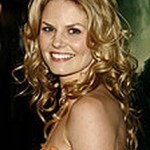
 Colm Resnic — John Noble; Elise Halley — Jennifer Morrison; Justin Lascari — Hugo Weaving
Colm Resnic — John Noble; Elise Halley — Jennifer Morrison; Justin Lascari — Hugo Weaving


 Ruth Caxton — Saoirse Ronan; Carl Gottred — Al Barclay; Sir Huillam Pordevere — Toby Stephens
Ruth Caxton — Saoirse Ronan; Carl Gottred — Al Barclay; Sir Huillam Pordevere — Toby Stephens
(1) Rights still available! Call now!
(2) I like to think there is some bug-ass crazy alternate universe where this actually happened, with the exact casting I specified. Except Jim Carey played Tisamon.
(3) Coming soon to an alternate universe near you!
November 14, 2015
The New Face of the Insect Kinden
Tor UK has now released brand new e-book editions of Shadows of the Apt! These are currently the new –e-book covers, although they make such a beautiful set that I'd love to see them on a paper copy some day. I love the details on these — both foreground and background.
November 8, 2015
State of the Nation — 2015
It's been an eventful year.
It' s only November, admittedly, so I guess it's been an eventful 9 months, but seriously I feel as though I've burned the midnight oil twice as brightly at both ends this year.(1)
I have done a lot of conventions, for a start. This year and last year have been overly crazy in that regard. 2015 has seen Luxcon, Eastercon, Edge Lit, Nine Worlds, Octocon and Fantasycon, and last year I had the usual suspects plus Titancon and Celsius. 2016, I will probably be cutting back to Easter, NineW, Fantasycon and probably Edge Lit. Beyond that, I will happy go to any con that wants me enough to actively invite me, but otherwise it's saving the pennies and getting on with writing stuff. (I will also be popping my head around the door at Thought Bubble next week in Leeds, but only as a punter. I'm actually very keen to break into comics writing, as I love the artform, but no serious progress yet.)
Looking back: it's been a year heavy on long form and rather light on short stories. I've had 'Children of Dagon' out in the recent Lightspeed, which can be read for free here. I've also had a story, "Crossed Gates" out in the most recent Postscripts journal from PS Publishing which is a piece of weird fiction inspired by my regular commute, of all things.
Long-wise, of course, we've had Guns of the Dawn, my Regency-ish military fantasy romance thing, which will be out in paperback later this month, and we've had Children of Time (paperback in April 2016) which I think is the most ambitious thing I ever wrote. If you have enjoyed either or both of these, by the way, please do leave a review if you are able — Amazon reviews really do help, as when you pass certain thresholds you start to appear on "you might also like…" lists and so forth. Also, if you enjoyed the books and have voting rights for any genre awards… 
Two very different novels in one year, neither of which is part of an ongoing series, has felt a bit like trying to cross a chasm by jumping between pillars, without a safety net. Of course both manuscripts were done and submitted long before 2015 dawned, and this year I've been exploding outwards in a variety of other directions, some of which should bear fruit next year.
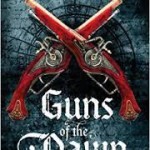
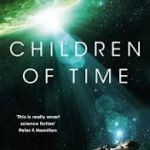
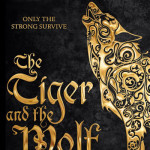 There will, of course, be The Tiger and the Wolf out pretty soon in February 2016, which should be entirely satisfactory on its own but should also be the start of a series. I read a couple of pieces from it at Fantasycon and they seemed to go down pretty well. The two main inspirational pillars that led to the book were (1) what do you get when everyone in a culture is a shapechanger? (2) what do you get if you consciously try to avoid medieval Europe as an inspiration for your setting? I came away happy from final edits on the manuscript, so I hope that readers take to it.
There will, of course, be The Tiger and the Wolf out pretty soon in February 2016, which should be entirely satisfactory on its own but should also be the start of a series. I read a couple of pieces from it at Fantasycon and they seemed to go down pretty well. The two main inspirational pillars that led to the book were (1) what do you get when everyone in a culture is a shapechanger? (2) what do you get if you consciously try to avoid medieval Europe as an inspiration for your setting? I came away happy from final edits on the manuscript, so I hope that readers take to it.
I have some other projects that will hopefully become a reality next year as well. Along with old friends Keris McDonald and Adam Gauntlett I will be bringing out a collection of Lovecraftian stories called The Private Life of Elder Things, possibly to be launched at Fantasycon next year. The publisher is Alchemy Press, for whom I've written a fair old number of stories over the years. The chief idea is new spins on some HPL favourites as the everyday lives of people (mostly) like you and me connect with the races of the mythos.
I am also working with another longtime favourite press, Newcon, to bring some Shadows of the Apt story collections into being, including a fair number of stories never seen before that explore the murkier corners of the kinden's world, or some early adventures of characters like Tisamon or Gaved. These will also collect the scatter of kinden stories that have appeared elsewhere in print, like 'Bones' and 'Sword and Circle'.
Also next year, I believe, will be Abaddon's interesting new project Monstrous Little Voices, a set of novellas by myself, Emma Newman, Foz Meadows, Jonathan Barnes and Kate Heartfield set in the nominal world Shakespeare's plays occur in. My own is 'Even in the Cannon's Mouth' (2), which takes various characters from Shakespeare's comedies, slaps them in uniform and throws them into the middle of a war. Laugh your way out of that one, Benedick.
What comes next after all of that, I cannot say. Watch this space.
(1) Many metaphors died to bring us this information.
(2) Do you italicise for novells? I think you do for novels, but don't for short stories. Perhaps I should italicise every other letter?
November 5, 2015
Cover reveal and bonus cartoon
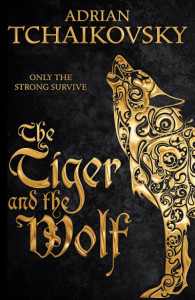 First things first, the cover for The Tiger and the Wolf is up, and very lovely it looks too.
First things first, the cover for The Tiger and the Wolf is up, and very lovely it looks too.
So I appear to have become the nemesis of Barry Nugent of Geek Syndicate who is… not fond of spiders. David Montieth, his co-presenter reviewed Children of TIme on the show (and has recently put up a written review here) but sadly Barry does not… rejoice in spiders. This led to my suggestion that I'd be the impetus for him to gain superpowers, and now I am apparently the evil mastermind behind a plot to overthrow all of Geek Syndicate and… profit? I even have minions. It's all getting rather out of hand.
Runalong
Morning lovely people! It's the dreaded day of the week. But @GeekSyndicate cheered me up with revelations about @aptshadow and secret bases
Adrian Tchaikovsky
@runalongwomble @GeekSyndicate So, Mr Nuge, I've been expecting you…
Runalong
@aptshadow @GeekSyndicate you're stroking a giant spider now aren't you?
Adrian Tchaikovsky
@runalongwomble@GeekSyndicate am trying but it's seriously not cooperating
There's a lot more of that sort of stuff on Twitter, and you should check out the episodes too, not least because it's a fantastic podcast. However it also led to the below piece of idleness. I've been wanting to get a few more cartoons up on the site, just because it's a thing I used to do, and there's that business about lights and bushels, and so I give you the reason most criminal masterminds choose cats.
October 19, 2015
Stockies 2015
I have taken my saw and hacked off the end of the previous post, and performed other grievous surgery, because I wanted to talk about the British Fantasy Holdstock Award 2015 in more detail. As noted, I've actually read the shortlist this year — mostly by apparently being psychic when picking reading material last/this year.
The Holdstock Award is for best fantasy novel (as opposed to horror novels which have their own creepy haunted house elsewhere.) So here is my original rundown of the field:
I have already written about Frances Hardinge's (see above for praise) Cuckoo Song, KT Davies' Breed and Robert Jackson Bennett's City of Stairs, all of which are worthy candidates.


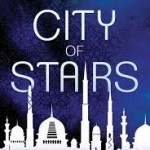 Also up are Neil Williamson's The Moon King, which is a city-set fantasy that shares some features of the Bennett, but goes further into Weird territory — an impossible city with shameful secrets buried beneath it, civil unrest and metaphysical threat. Ed Cox's The Relic Guild (the sequel to which, the gorgeously titled Cathedral of Known Things has, I think, just been released) is another angle on the same set up, falling more on the side of a traditional fantasy narrative compared to the other two — in this case the city is way more impossible, and the dark past far more of a clear and present danger.
Also up are Neil Williamson's The Moon King, which is a city-set fantasy that shares some features of the Bennett, but goes further into Weird territory — an impossible city with shameful secrets buried beneath it, civil unrest and metaphysical threat. Ed Cox's The Relic Guild (the sequel to which, the gorgeously titled Cathedral of Known Things has, I think, just been released) is another angle on the same set up, falling more on the side of a traditional fantasy narrative compared to the other two — in this case the city is way more impossible, and the dark past far more of a clear and present danger.
Last of all is Lavie Tidhar's A Man Lies Dreaming. I've praised his Violent Century before, and enjoyed his Osama before that, and this work is more of Tidhar's strong stuff — a historical narrative, an alternate reality, a meditation on the Holocaust. Partly the story is the of a Jewish pulp writer in the camps at Auschwitz; partly it an alternate timeline where the Communists defeated the Nazis in the early 30s and Hitler ends up as a seedy private eye in a London where Mosley is riding to power on a wave of anti-immigrant hysteria. The latter story may be no more than the dream of the former, but that robs neither of their fascinating power.
A little more in-depth analysis now, to the extent that I'm temperamentally capable of giving it. Interestingly there are four of the six I'd count somewhere within the traditional fantasy bounds, and a couple of definite outliers. Cuckoo Song is the only explicit YA book of the set — Hardinge is one of the best authors I know, adult or YA, and it tells a very weird, creepy story that is about fairies and making bad deals, with a very nice period setting to boot. What it really investigates, though, is identity and alienation, especially from a child's point of view, and frankly it would have been a good fit for the horror list had the judges decided to take things that way. Hardinge is, here as always, a writer whose elegant use of language is perfectly matched by her capacious imagination. It is also the only novel on the list that comes close to the "urban fantasy" end of things — i.e. a novel set in a real world (though a period one) underpinned by hidden supernatural goings on. Last year the shortlist was strongly dominated by urban fantasy — Newman, Pollack and Gaiman amongst them, so it's an interesting shift either in taste or in available material. Of course that's only one definition of urban fantasy (though the definition that has "won", if that declaration means anything) — because most of the rest are cityscapes of one sort or another.
The other outlier is the Tidhar, an author who has worked very hard at hacking his own path through the brush for some time. Osama and Violent Century were both thought-provoking and very different books, and Dreaming is another. It's very much "weird fiction" with Tidhar's trademark grasp of 20th century history and politics thrown in, and it's honestly hard to talk about it without getting very far down the rabbit hole (and spoiling it for the reader). I appreciate that talking about the worldbuilding of the alternate history is to stray massively from the point of the book, but it is absorbing in and of itself — plenty of alt histories take the "What if Hitler had won?" line. I've personally never come across one that follows the idea of what would happen if Hitler had never come into power at all. The logic plays out very plausibly, often horribly, and often very explicitly. Nice safe cover, contents definitely NSFW…
Davies's Breed is, I think, the book I had the most fun reading, and as a light-hearted roguelike fantasy (1) I'm overjoyed that it's been recognised as an extremely well put together work of fiction — books of more comic tone are often pushed to the back when the awards train comes around, in favour of the sombre and the literary. Breed is a splendid fantasy picaresque that doesn't cut corners with its characters or its world, and also addresses serious issues like racism and historical revisionism without losing its shine at any time (it's a hard comparison to make, but that was always Sir Terry's great strength and it's nice to see the art remains in play).
Breed is (unusually for a roguelike) a fantasy of traditional structure, starting in a city but then progressing from place to place as the hapless (and ungendered) protagonist fights, sneaks, tricks and brags zer way into and out of trouble. The second half of the list, however, are all city fantasies (which I used to call urban fantasies but apparently they're not, they're just fantasies that are urban). Trad fantasy has generally been rural and travellogue-based — Conan and Frodo and Elric are all shiftless vagabonds, really, and Belgarion and the Shannarians and the like follow in those footsteps. Yes there was Lankhmar, but Fafhrd and the Mouser were out and about as often as they were staying at home. A travelling story is convenient because fantasy heroes can generally be tracked by the trail of corpses and breakages they leave. If your heroes are stuck in a city, then they have to live with the consequences of their actions in a much more immediate way — leading to potentially richer and more convoluted plots. Mary Gentle was ahead of the curve with Rates and Gargoyles, and Mieville, of course, was an early adopter , and since then there have been a great many others (Polansky, Lynch, Whates, Vandermeer etc.).
The three up for the award are an interesting cross-section of this sort of work, because there's definitely a realism continuum at work. All three books feature cities with fantastic elements, but there's a distinct difference between the physical, lived-in city of Relic Guild, which has a crazy (and supremely dangerous) setting, but where real people live physical lives, and magic is something that is done by people, compared to the city in The Moon King which has a definite KJ Bishop (Etched City — one of my all time favourites) or Harrison (Viriconium) looseness of reality. We know what is real, in Cox's book, even if that reality is terrifying. In the Williamson, reality itself is often more slippery when grasped. And City of Stairs is a little from columns A and B, for the world outside the city has been rigidly pinned down, but the more we discover about how things used to be, the less we (and the protagonists) realise we actually know or understand. The lost gods of Bulikov are simply so vast and so inhuman that nothing around them remains amenable to hard definitions.
And I'm not going to call it. It's a strong shortlist, although I'm saying that as someone whose tastes are very obviously being catered for. I look forward to Fantasycon this weekend when the verdict will be given.
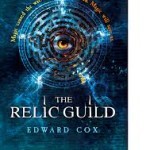
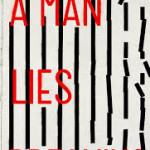 (1) meaning a fantasy starring a rogue, not a fantasy where everyone dies in three pages because they run out of food or are straight up murdered by a chicken.
(1) meaning a fantasy starring a rogue, not a fantasy where everyone dies in three pages because they run out of food or are straight up murdered by a chicken.
October 13, 2015
A Great Big Pile of Books
The title generator has finally given up the ghost! Metaphor, snark and dubious pun stocks are at an all time low! Dig for victory!
Sooo much to cram into this podcast, so very brief nod to Octocon in Dublin, which was great fun and highly recommended. Maura McHugh and Emma Newman were superb GoH's, the Vault of Horror is truly, wonderfully horrible, and there was the very pleasant sideline of hearing not-yet-announceable good news from friends, which given how brutal the publishing industry is right now is always welcome. The only downside was that the cheapish hotel I stayed at turned out to be cheapish because it was next to a nightclub, and so of sleep there was none, and even less than none because Dublin was pretty damn happy to have beaten Germany at home and wanted to make sure that I was fully appraised of this.
So this is one of my book-recommending posts, but it shall be split into two halves, and the number of its halves shall be two (1). Firstly, some books what I have read and enjoyed, secondly some books what happen to be up for the British Fantasy Award. I am doing none of these books any

 First up, Age of Scorpio by Gavin Smith, which is a very fast-paced super-high-tech space opera set in a post-human far future where only uplifted animal species (hybrids?) survive. At the same time another third of the plot takes place in Bronze Age Britain and another third in a grimy near future, all three concerning a fight over ancient alien tech and a mysterious coccoon. It is extremely violent — especially in the future sections which have entire planets as collateral damage - and that is something of an acquired taste, but I very much liked the split between time zones, and also the character of Vic, an eight feet tall sweary insect space marine. Also in the space opera vein I have also recently read Ian Sales' Prospect of War. Sales is best known for his very hard SF, and it's fascinating to see him turn his talents to something very different here - far more of a straight up military/spycraft SF, complete with navies and Dune-style noble houses. I particularly liked his space combat, where the science and the fiction met in a very smooth partnership.
First up, Age of Scorpio by Gavin Smith, which is a very fast-paced super-high-tech space opera set in a post-human far future where only uplifted animal species (hybrids?) survive. At the same time another third of the plot takes place in Bronze Age Britain and another third in a grimy near future, all three concerning a fight over ancient alien tech and a mysterious coccoon. It is extremely violent — especially in the future sections which have entire planets as collateral damage - and that is something of an acquired taste, but I very much liked the split between time zones, and also the character of Vic, an eight feet tall sweary insect space marine. Also in the space opera vein I have also recently read Ian Sales' Prospect of War. Sales is best known for his very hard SF, and it's fascinating to see him turn his talents to something very different here - far more of a straight up military/spycraft SF, complete with navies and Dune-style noble houses. I particularly liked his space combat, where the science and the fiction met in a very smooth partnership.
Next is Dave Hutchinson's Europe at Midnight. I have already waxed on the previous volume, the superb Europe in Autumn, in a previous post, and I liked it very much. Midnight is Hutchinson actually upping his game, with some top notch Cold War style spy action and some reveals about the Big Secret Stuff you learn at the end of Autumn. I can't really say more without spoilers — and you won't want this one spoiled. but it is superb. Autumn came within a whisker of awards this year. Midnight looks to be a strong contender for next.
Another book I've previously recommended is Sophia MacDougall's Mars Evacuees, which is a superb mid-grade/young adult SF story with better S than a lot of adult science fiction. The sequel, Space Hostages, is now out, and is another excellent read — more alien cultures, more space peril, more robot goldfish, and more incisive commentary on the modern world through the lens of SF.
I met Clifford Beal at Fantasycon in 2014 but have been very remiss in not getting round to reading his work until now. I had the pleasure of an advance copy of The Raven's Banquet out of Nine Worlds, and was finally able to put that right. Beal writes historical fiction very much in the same way as Cornwell does with his Arthur books — right on the border between straight history and fantastic history — whether there is a supernatural or purely a psychological element to what's going on is up to the reader. Clifford writes extremely well — swift and elegant prose about complex and believable characters.
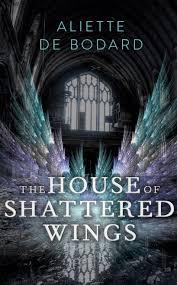 Aliette de Bodard's House of Shattered Wings is another recent acquisition. I've been looking forward to this one ever since I heard about it, and it didn't disappoint (also: my favourite cover of this year from Teddy Eduardo Iglesias/Shadoweddancer). The setting is Paris after the Great War, only the Great War was a magical one that has left the city an utter ruin, familiar landmarks picked over by gangs and monsters, or dominated by ragged noble houses led mostly by fallen angels. There is a lot said about imperialism (French, specifically — one character is a Vietnamese soldier dragged to Europe to fight, then abandoned) and the use and abuse of power, and every character (all beautifully realised) lives a daily round of terrible choices and conflicting loyalties. This is, straight up, a wonderful book, a really original fantasy marvellously realised. Another for the awards lists, methinks.
Aliette de Bodard's House of Shattered Wings is another recent acquisition. I've been looking forward to this one ever since I heard about it, and it didn't disappoint (also: my favourite cover of this year from Teddy Eduardo Iglesias/Shadoweddancer). The setting is Paris after the Great War, only the Great War was a magical one that has left the city an utter ruin, familiar landmarks picked over by gangs and monsters, or dominated by ragged noble houses led mostly by fallen angels. There is a lot said about imperialism (French, specifically — one character is a Vietnamese soldier dragged to Europe to fight, then abandoned) and the use and abuse of power, and every character (all beautifully realised) lives a daily round of terrible choices and conflicting loyalties. This is, straight up, a wonderful book, a really original fantasy marvellously realised. Another for the awards lists, methinks.
Last in this list, a new release from one of my all time favourite authors, Frances Hardinge. Her new book is The Lie Tree, and I read it practically in a single sitting. The setting is the Victorian age, and the young heroine Faith is the daughter of a clergyman natural historian of some renown, who abruptly uproots (sorry) his entire family to a remove island for… reasons. There is a murder mystery, and there is a profoundly biting social commentary centring about the gap between Faith's ambitions to be a scientist and the entire world's expectation that she will be seen, not heard, and thereafter disposed of by way of marriage. And there is the titular Lie Tree, a bizarre piece of gothic creepiness that grows through the plot literally and thematically. I am not doing the book justice, frankly. It is very funny, where it needs to be; it is grippingly tense; it is terribly, terribly sad — more emotionally affecting than anything else I've read in a long time. Hardinge is another writer more than familiar with shortlists and this deserves to be seen on them.
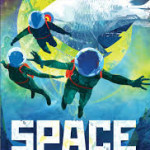
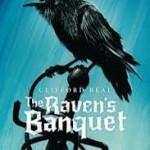
 So, on to the BFS Awards, which will be announced in just a couple of weeks at Fantasycon in Nottingham. I don't normally do a Thing about these but to my extreme surprise, when the shortlist for the Holdstock Award (best fantasy novel) was revealed I had actually read all bar one, and I've now caught up with that one.
So, on to the BFS Awards, which will be announced in just a couple of weeks at Fantasycon in Nottingham. I don't normally do a Thing about these but to my extreme surprise, when the shortlist for the Holdstock Award (best fantasy novel) was revealed I had actually read all bar one, and I've now caught up with that one.
I have already written about Frances Hardinge's (see above for praise) Cuckoo Song, KT Davies' Breed and Robert Jackson Bennett's City of Stairs, all of which are worthy candidates.


 Also up are Neil Williamson's The Moon King, which is a city-set fantasy that shares some features of the Bennett, but goes further into Weird territory — an impossible city with shameful secrets buried beneath it, civil unrest and metaphysical threat. Ed Cox's The Relic Guild (the sequel to which, the gorgeously titled Cathedral of Known Things has, I think, just been released) is another angle on the same set up, falling more on the side of a traditional fantasy narrative compared to the other two — in this case the city is way more impossible, and the dark past far more of a clear and present danger.
Also up are Neil Williamson's The Moon King, which is a city-set fantasy that shares some features of the Bennett, but goes further into Weird territory — an impossible city with shameful secrets buried beneath it, civil unrest and metaphysical threat. Ed Cox's The Relic Guild (the sequel to which, the gorgeously titled Cathedral of Known Things has, I think, just been released) is another angle on the same set up, falling more on the side of a traditional fantasy narrative compared to the other two — in this case the city is way more impossible, and the dark past far more of a clear and present danger.
Last of all is Lavie Tidhar's A Man Lies Dreaming. I've praised his Violent Century before, and enjoyed his Osama before that, and this work is more of Tidhar's strong stuff — a historical narrative, an alternate reality, a meditation on the Holocaust. Partly the story is the of a Jewish pulp writer in the camps at Auschwitz; partly it an alternate timeline where the Communists defeated the Nazis in the early 30s and Hitler ends up as a seedy private eye in a London where Mosley is riding to power on a wave of anti-immigrant hysteria. The latter story may be no more than the dream of the former, but that robs neither of their fascinating power.

 (1) the quantity of sheer nonsense in this post is indicative of the hurry with which I am writing it.
(1) the quantity of sheer nonsense in this post is indicative of the hurry with which I am writing it.


